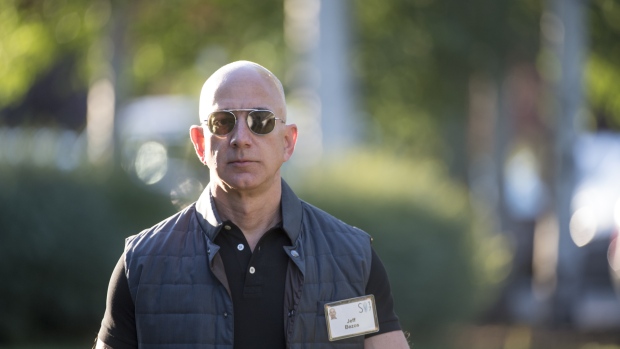Jun 10, 2018
Watchdog blasts Amazon for conditions at Chinese Echo factory
, Bloomberg News

A watchdog group is calling on Amazon.com Inc. to improve conditions for factory workers in China who make Echo speakers and Kindle e-readers, renewing criticisms that CEO Jeff Bezos became the world’s wealthiest man on the backs of low-paid labourers.
The New York-based China Labor Watch released a report at the weekend following a nine-month investigation of working conditions at a factory in the city of Hengyang owned by Hon Hai Precision Industry Co., the company known as Foxconn, which manufactures products for Amazon. It offers the first behind-the-scenes glimpse of how Amazon produces voice-activated speakers that cost as little as US$40.
The report, which paints a picture of low pay and intense working conditions, includes the following findings:
-Workers were required to work more than 100 hours of monthly overtime in violation of Chinese labour law that limits overtime to 36 hours a month
-The factory uses more “dispatch workers,” similar to temporary staff in the U.S., than are allowed by Chinese law
-Employees did not receive adequate safety training
-Workers are required to arrive at work stations 10 minutes before their shift begins and they are not compensated for this time
-Staff dormitories lack adequate fire-safety precautions such as fire extinguishers
“All workers are subject to long hours and low wages,” the report stated. “As wages are low, workers must rely on overtime hours to earn enough to maintain a decent standard of living.”
Amazon completed an audit of the factory in March and found violations regarding overtime and the use of dispatch workers, which it has asked Foxconn to remedy, it said in an emailed statement.
“We immediately requested a corrective action plan from Foxconn Hengyang detailing their plan to remediate the issues identified, and we are conducting regular assessments to monitor for implementation and compliance with our Supplier Code of Conduct,” Amazon said. “We are committed to ensuring that these issues are resolved.”
Foxconn didn’t immediately respond to requests by Bloomberg News for comment. The major electronics manufacturer in China, was criticized for poor working conditions in factories where Apple Inc. devices were made, leading to the company installing safety netting to prevent worker suicides. The findings at the Amazon device factory were similar, but less severe.
ECHO SPEAKERS
Amazon, the world’s biggest online retailer, sells a variety of devices. Kindles and tablets help it sell more digital books. It has sold tens of millions of Echo voice-activated speakers, which can be used to dim lights, stream music and order pizza.
Amazon also has faced criticism for working conditions in its U.S. warehouses. One lawsuit alleged Amazon cheated workers out of pay by making them clock off before standing in security lines for theft-prevention measures before leaving the building. Amazon prevailed in that case before the Supreme Court, which ruled the workers were not entitled to payment for security screenings.
--With assistance from Debby Wu





